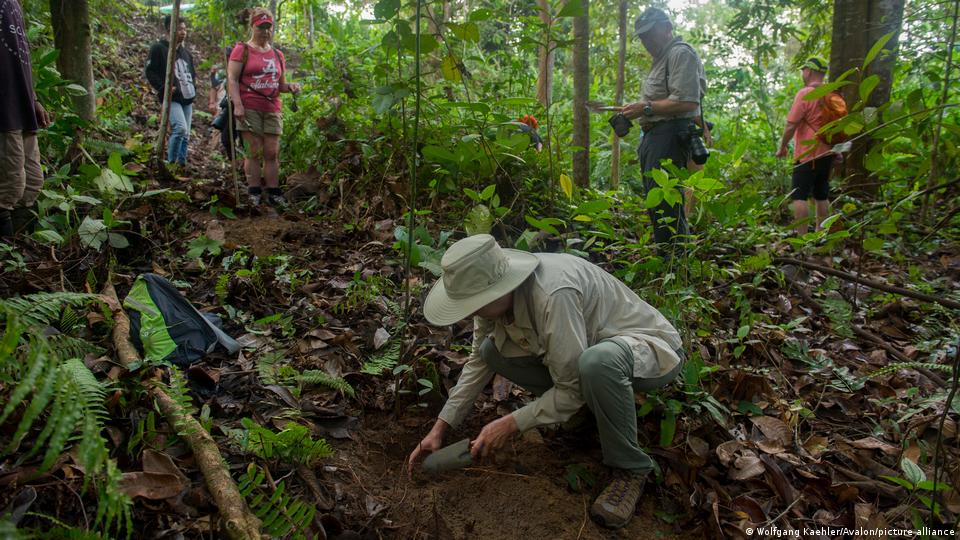
Climate change is a pressing global issue that necessitates collective action and adaptation. In light of this, it is crucial to recognize the organizations at the forefront of climate change adaptation efforts.
This article delves into the top ten influential climate change adaptation organizations that are making a substantial impact on the environment. By understanding their work and initiatives, readers will be better equipped to engage in the fight against climate change and contribute to a more sustainable future.
Intergovernmental Panel on Climate Change
The Intergovernmental Panel on Climate Change (IPCC), established in 1988, is a globally recognized scientific body that assesses the risks and impacts of climate change on both the environment and society.
Comprised of hundreds of experts from around the world, the IPCC provides policymakers with objective and comprehensive information to guide climate change adaptation strategies.
By synthesizing the latest scientific research, the IPCC plays a crucial role in identifying potential vulnerabilities, evaluating adaptation options, and informing policy decisions at the international, national, and local levels.
Through its reports and assessments, the IPCC offers a scientific consensus on the state of climate change and its impacts, contributing to the global understanding of the urgency and necessity of climate change adaptation.
As one of the most influential intergovernmental panels, the IPCC leads the way in promoting effective climate change adaptation measures worldwide.

Greenpeace
Greenpeace frequently advocates for climate change adaptation measures through its influential environmental activism. Founded in 1971, Greenpeace is an international non-governmental organization that campaigns for environmental issues, including climate change.
The organization's mission is to protect the planet and promote peace by taking direct action, conducting research, and engaging in lobbying and advocacy efforts. Greenpeace uses nonviolent and creative methods to raise awareness about the urgent need for climate change adaptation. Their campaigns often involve protests, direct actions, and media campaigns to pressure governments and corporations to take action.
Greenpeace works alongside other influential organizations like the Sierra Club to amplify their impact and achieve their goals. Both organizations have a shared mission of protecting the environment and advancing climate change adaptation initiatives. By combining their efforts, Greenpeace and the Sierra Club are able to advocate for stronger policies and inspire individuals to take action in the fight against climate change.
World Wildlife Fund
The World Wildlife Fund (WWF) is a leading conservation organization that focuses on protecting the world's ecosystems and promoting sustainable practices.
WWF's conservation efforts span across various regions and include initiatives to protect endangered species, preserve natural habitats, and combat climate change.
Through its extensive network and partnerships, WWF has made a significant impact in preserving biodiversity and advocating for the adoption of environmentally friendly policies and practices.
Wwf's Conservation Efforts
WWF's Conservation Efforts have significantly contributed to climate change adaptation initiatives over the past decade. The World Wildlife Fund (WWF), being one of the most influential organizations in this field, has implemented various conservation projects aimed at mitigating the impacts of climate change. Here are some notable initiatives undertaken by WWF:

- Protecting Biodiversity: WWF has been actively involved in conserving endangered species and their habitats. Through its conservation efforts, the organization helps maintain biodiversity, which is crucial for ecosystems to adapt to changing climatic conditions.
- Sustainable Land Use: WWF promotes sustainable land use practices to reduce deforestation and land degradation, both of which contribute to climate change. By encouraging responsible farming techniques and supporting community-based natural resource management, WWF helps communities adapt to the challenges posed by climate change.
- Climate-Smart Policies: WWF advocates for the implementation of climate-smart policies at national and international levels. These policies focus on reducing greenhouse gas emissions, promoting renewable energy sources, and supporting sustainable development practices.
WWF's Conservation Efforts have played a significant role in addressing climate change impacts and ensuring a sustainable future for both nature and humanity.
Impact on Biodiversity
The conservation efforts of the World Wildlife Fund have had a significant impact on biodiversity in relation to climate change adaptation. Climate change's impact on ecosystems and its effect on species extinction are major concerns for the organization.
The World Wildlife Fund recognizes that climate change is causing disruptions to natural habitats and altering the delicate balance of ecosystems, leading to the loss of biodiversity. By working to protect and restore critical habitats, the organization helps to mitigate the negative effects of climate change on species and ecosystems.
Through initiatives such as the preservation of forests, protection of endangered species, and sustainable land and water management, the World Wildlife Fund contributes to the preservation of biodiversity in the face of climate change challenges.
Climate change adaptation organizations, like the World Wildlife Fund, play a crucial role in promoting sustainable practices to address the challenges posed by climate change. These organizations recognize the urgent need to transition to more sustainable farming methods that reduce greenhouse gas emissions while ensuring food security.
Sustainable farming practices, such as organic farming, agroforestry, and precision agriculture, aim to minimize the use of synthetic inputs, conserve water, enhance soil health, and protect biodiversity.
Additionally, these organizations advocate for the adoption of renewable energy solutions to reduce reliance on fossil fuels and combat climate change. Renewable energy sources, such as solar, wind, and hydroelectric power, are clean and sustainable alternatives that can significantly reduce carbon emissions.

United Nations Environment Programme
The United Nations Environment Programme (UNEP) plays a crucial role in climate change adaptation efforts worldwide. UNEP focuses on supporting countries in developing and implementing adaptation strategies, providing technical assistance, and promoting knowledge exchange.
Notable UNEP initiatives include the Adaptation Gap Report, which assesses the difference between the financial and technical support available and the actual needs for adaptation.
Unep's Role in Adaptation
An important player in climate change adaptation is the United Nations Environment Programme (UNEP). UNEP's initiatives in adaptation are crucial in addressing the challenges posed by climate change. Here are some key aspects of UNEP's role in adaptation:
- UNEP promotes sustainable development by integrating climate change adaptation into policy frameworks at national and international levels.
- UNEP provides technical assistance and capacity-building support to countries in developing and implementing effective adaptation strategies.
- UNEP plays a vital role in policy making by facilitating global cooperation and coordination on adaptation efforts.
- UNEP works closely with other UN agencies, governments, civil society, and the private sector to foster collaboration and knowledge exchange.
- UNEP's initiatives aim to enhance resilience, reduce vulnerability, and promote sustainable livelihoods in the face of climate change impacts.
Through its diverse activities, UNEP continues to contribute significantly to climate change adaptation efforts worldwide.
Notable UNEP Initiatives
Continuing its role in addressing the challenges of climate change adaptation, the United Nations Environment Programme (UNEP) has implemented several notable initiatives.
One of these initiatives is the Global Adaptation Network (GAN), which aims to enhance adaptation capacity and knowledge sharing among countries and organizations. Through the GAN, UNEP facilitates collaboration and promotes the exchange of best practices in climate change adaptation.
Another notable initiative is the Climate Change Adaptation Knowledge Platform (AKP), which provides access to a wealth of information and resources on adaptation. The AKP serves as a hub for experts, policymakers, and practitioners to share their experiences and learn from each other.

UNEP's role in adaptation is further strengthened by initiatives like the Adaptation Fund, which supports developing countries in implementing concrete adaptation projects.
These notable UNEP initiatives demonstrate the organization's commitment to addressing the impacts of climate change and building resilience in vulnerable communities.
Unep's Impact on Climate?
The impact of the United Nations Environment Programme (UNEP) on climate change cannot be underestimated. UNEP plays a crucial role in promoting renewable energy solutions and collaborating with indigenous communities for climate resilience. Here are some key initiatives and collaborations that highlight UNEP's impact on climate:
- Promoting Renewable Energy Solutions:
UNEP actively supports and promotes the use of renewable energy sources such as solar, wind, and hydropower. Through initiatives like the Global Renewable Energy Efficiency Network, UNEP works to accelerate the transition towards sustainable and clean energy systems.
- Collaboration with Indigenous Communities for Climate Resilience:
UNEP recognizes the importance of indigenous knowledge and the role of indigenous communities in achieving climate resilience. By involving indigenous communities in decision-making processes and supporting their traditional practices, UNEP fosters sustainable and resilient solutions to climate change.
- Capacity Building and Knowledge Sharing:
UNEP conducts capacity building programs and promotes knowledge sharing among countries, organizations, and communities. By equipping stakeholders with the necessary tools and information, UNEP empowers them to address climate change challenges effectively.
Through these initiatives and collaborations, UNEP contributes significantly to mitigating climate change and promoting a sustainable future for all.
Sierra Club
One of the most influential climate change adaptation organizations is the Sierra Club. Known for its conservation efforts, the Sierra Club has been at the forefront of environmental advocacy since its establishment in 1892.
With over 3.8 million members and supporters, the organization aims to protect and preserve the planet's natural resources and wildlife. The Sierra Club has been actively involved in promoting renewable energy, fighting against fossil fuel extraction, and advocating for climate change policies.
Through grassroots organizing, lobbying, and legal action, the Sierra Club has made significant contributions to the environmental movement. While its impact may not be as global as Greenpeace, the Sierra Club's focus on local and national issues has resulted in tangible changes and increased awareness about climate change and the need for adaptation strategies.

Environmental Defense Fund
The Environmental Defense Fund (EDF) is one of the leading climate change advocacy organizations in the world.
With its global impact and reach, the EDF has been instrumental in driving positive change in environmental policies and practices.
Through its innovative approach and collaborative efforts, the EDF continues to make significant strides in addressing the challenges posed by climate change and promoting sustainable solutions.
Leading Climate Change Advocates
Environmental Defense Fund is a prominent advocate for climate change mitigation and adaptation. They have established themselves as leaders in climate change advocacy, working towards effective strategies for climate adaptation.
Here are three key reasons why Environmental Defense Fund is considered a leading climate change advocate:
- Innovative Approaches: The organization utilizes innovative approaches to address climate change challenges. They focus on finding practical solutions that balance environmental and economic needs, working with businesses, policymakers, and communities to implement effective strategies.
- Science-Based Solutions: Environmental Defense Fund relies on scientific research and data to develop their climate change adaptation strategies. They work closely with scientists and experts to ensure that their initiatives are grounded in rigorous scientific understanding.
- Collaborative Partnerships: The organization believes in the power of collaboration. They actively engage with stakeholders from various sectors, including government agencies, businesses, and communities, to collectively work towards building resilience and adapting to the impacts of climate change.
Through their leading climate change advocacy and effective strategies for climate adaptation, Environmental Defense Fund continues to play a crucial role in addressing and mitigating the impacts of climate change.
Global Impact and Reach
With its extensive reach and significant global influence, the Environmental Defense Fund has emerged as a key player in the realm of climate change adaptation. The organization's efforts have had a profound impact on global climate initiatives and the development of international climate agreements.

Through its active involvement in policy advocacy, scientific research, and collaborative partnerships, the Environmental Defense Fund has been instrumental in shaping the global response to climate change. The organization's work spans across continents, addressing the diverse challenges faced by communities and ecosystems worldwide.
Natural Resources Defense Council
A prominent organization in climate change adaptation is the Natural Resources Defense Council (NRDC). As one of the leading environmental advocacy groups, the NRDC focuses on protecting natural resources and addressing climate change impacts.
Here are some key points about the NRDC:
- Mission: The NRDC's mission is to safeguard the Earth, its people, its plants, and animals, and the natural systems on which all life depends.
- Approach: The organization combines the power of science, law, and the support of more than 3 million members and online activists to advocate for policies that promote sustainable solutions and mitigate climate change.
- Collaboration: The NRDC collaborates with other influential organizations like the Sierra Club to amplify their collective impact and foster a global movement for environmental protection.
The NRDC's work spans a wide range of issues, including clean energy, sustainable agriculture, and protecting vulnerable communities from the effects of climate change. Through research, advocacy, and legal action, the NRDC plays a vital role in driving climate change adaptation efforts.
Friends of the Earth
One notable organization in climate change adaptation is Friends of the Earth, a prominent advocate for environmental protection and sustainable solutions. Friends of the Earth is dedicated to promoting environmental activism and addressing climate change through grassroots movements. With a presence in 75 countries, they work towards creating a more sustainable and just world by advocating for policy changes at local, national, and international levels.
Friends of the Earth engages in various activities, including research, campaigning, and lobbying, to raise awareness about the urgent need to address climate change. They collaborate with communities, organizations, and individuals to promote sustainable practices and empower people to take action.
Through their efforts, Friends of the Earth plays a vital role in driving environmental change and inspiring global movements to combat climate change.

Climate Action Network
The Climate Action Network is a highly influential organization in climate change adaptation, actively working towards promoting sustainable solutions and advocating for policy changes at local, national, and international levels. It plays a crucial role in bringing together various non-governmental organizations (NGOs) from around the world to collaborate and coordinate efforts in addressing the impacts of climate change. The organization's primary focus is to ensure that global policies and actions are in line with the goals of the Paris Agreement and the United Nations Framework Convention on Climate Change (UNFCCC).
The Climate Action Network operates through its regional and national branches, providing a platform for knowledge-sharing, capacity-building, and collective action. Its impact on global policy can be seen through its active engagement in international climate negotiations and its influence on shaping climate policies and commitments by governments and institutions worldwide.
The Climate Action Network promotes sustainable solutions through various initiatives:
- Encouraging renewable energy adoption and phasing out fossil fuels.
- Supporting climate-resilient agriculture practices and food security.
- Promoting nature-based solutions and ecosystem restoration.
The organization advocates for policy changes at different levels:
- Pushing for stronger emission reduction targets and implementation of climate actions.
- Lobbying for the allocation of climate finance to support adaptation and mitigation efforts.
- Highlighting the importance of incorporating climate change considerations into development planning and policies.
The Climate Action Network's impact on global policy is significant:
- It influences the negotiations and outcomes of international climate conferences, such as the annual UNFCCC Conference of the Parties (COP).
- The organization's research, analysis, and advocacy efforts contribute to shaping global climate agreements and commitments.
- Its network of NGOs amplifies the voices of civil society, ensuring that climate justice and equity are central to climate policies and actions.
Rainforest Alliance
Continuing the discussion on influential climate change adaptation organizations, the Rainforest Alliance stands as a prominent advocate for sustainable practices and conservation efforts.
Founded in 1987, the Rainforest Alliance works to protect forests, conserve biodiversity, and promote the rights and well-being of local communities. Their approach combines scientific research, partnerships with businesses, and community engagement to address the complex challenges of climate change.

The Rainforest Alliance focuses on the protection of rainforests, which play a crucial role in mitigating climate change by absorbing carbon dioxide and providing habitat for countless species. By working with companies and communities, they promote sustainable land use practices and help develop climate-resilient economies.
The Rainforest Alliance collaborates with other organizations, including the Sierra Club, to amplify their impact and advocate for stronger environmental policies.
Frequently Asked Questions
How Does the Intergovernmental Panel on Climate Change (Ipcc) Contribute to Climate Change Adaptation Efforts?
The IPCC plays a critical role in shaping climate change policies and has a significant influence on international climate change negotiations. Through its scientific assessments and reports, the IPCC provides valuable information and guidance for climate change adaptation efforts worldwide.
What Are Some of the Key Campaigns and Initiatives Undertaken by Greenpeace to Address Climate Change Adaptation?
Greenpeace's approach to climate change adaptation includes advocating for renewable energy, promoting sustainable agriculture, and protecting vulnerable ecosystems. Their impactful campaigns have influenced policy-making by raising awareness and mobilizing public support for climate change adaptation measures.
How Does the World Wildlife Fund (Wwf) Support Climate Change Adaptation Measures in Different Regions of the World?
The World Wildlife Fund (WWF) plays a crucial role in supporting climate change adaptation measures in various regions. Through its collaborative approach, the WWF works with local communities, governments, and stakeholders to implement sustainable strategies that address the impacts of climate change on biodiversity and ecosystems.
What Role Does the United Nations Environment Programme (Unep) Play in Coordinating Global Efforts for Climate Change Adaptation?
The United Nations Environment Programme (UNEP) plays a crucial role in coordinating global efforts for climate change adaptation. As an international organization, UNEP emphasizes the importance of collaboration and facilitates the exchange of knowledge and resources to address the challenges of climate change on a global scale.
The Sierra Club contributes to raising awareness and promoting climate change adaptation at the local level in the United States through its local climate change initiatives and advocacy efforts.

 Business & FinanceHealth & MedicineTechnologyLifestyle & CultureScience & EnvironmentWorld NewsPrivacy PolicyTerms And Conditions
Business & FinanceHealth & MedicineTechnologyLifestyle & CultureScience & EnvironmentWorld NewsPrivacy PolicyTerms And Conditions
